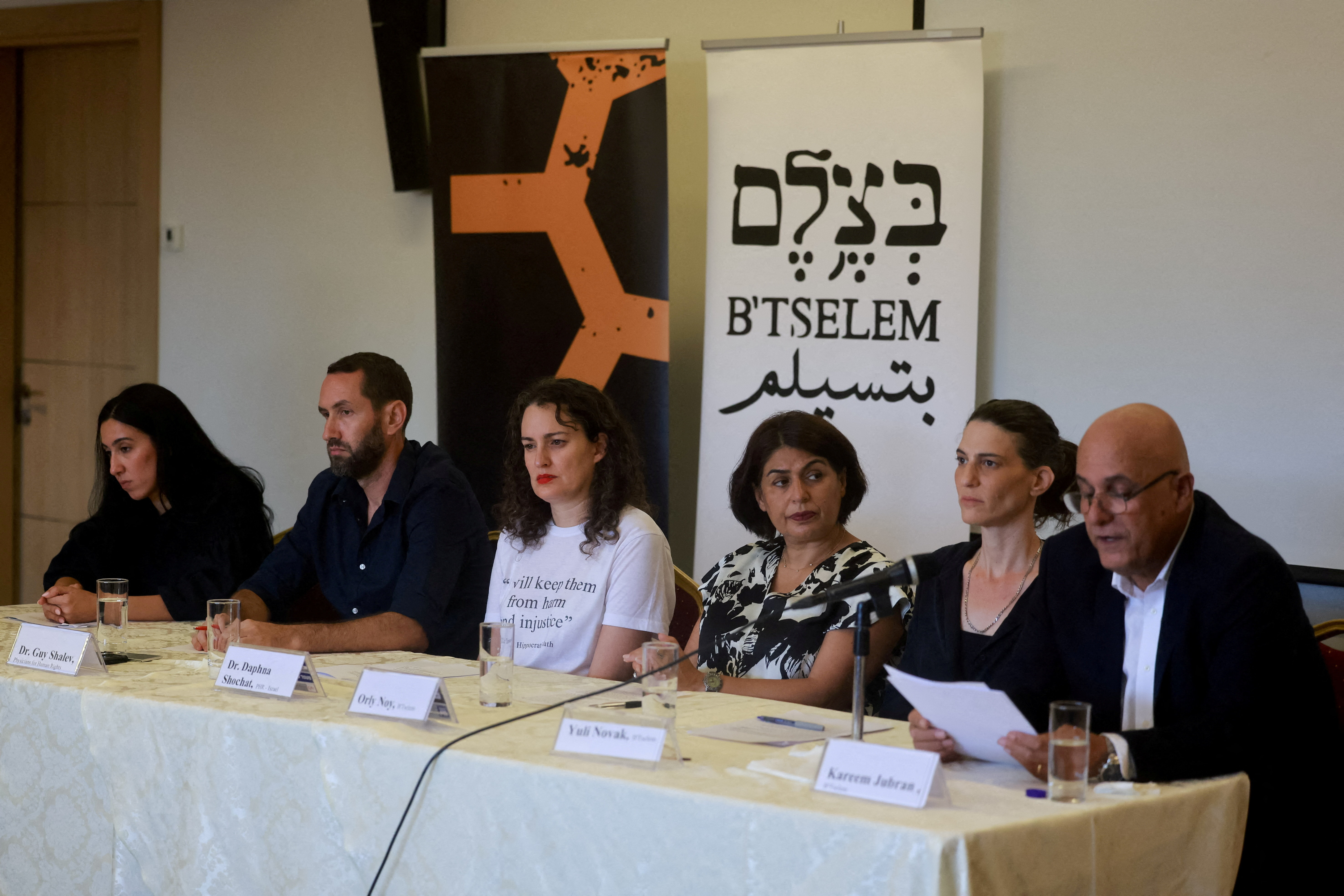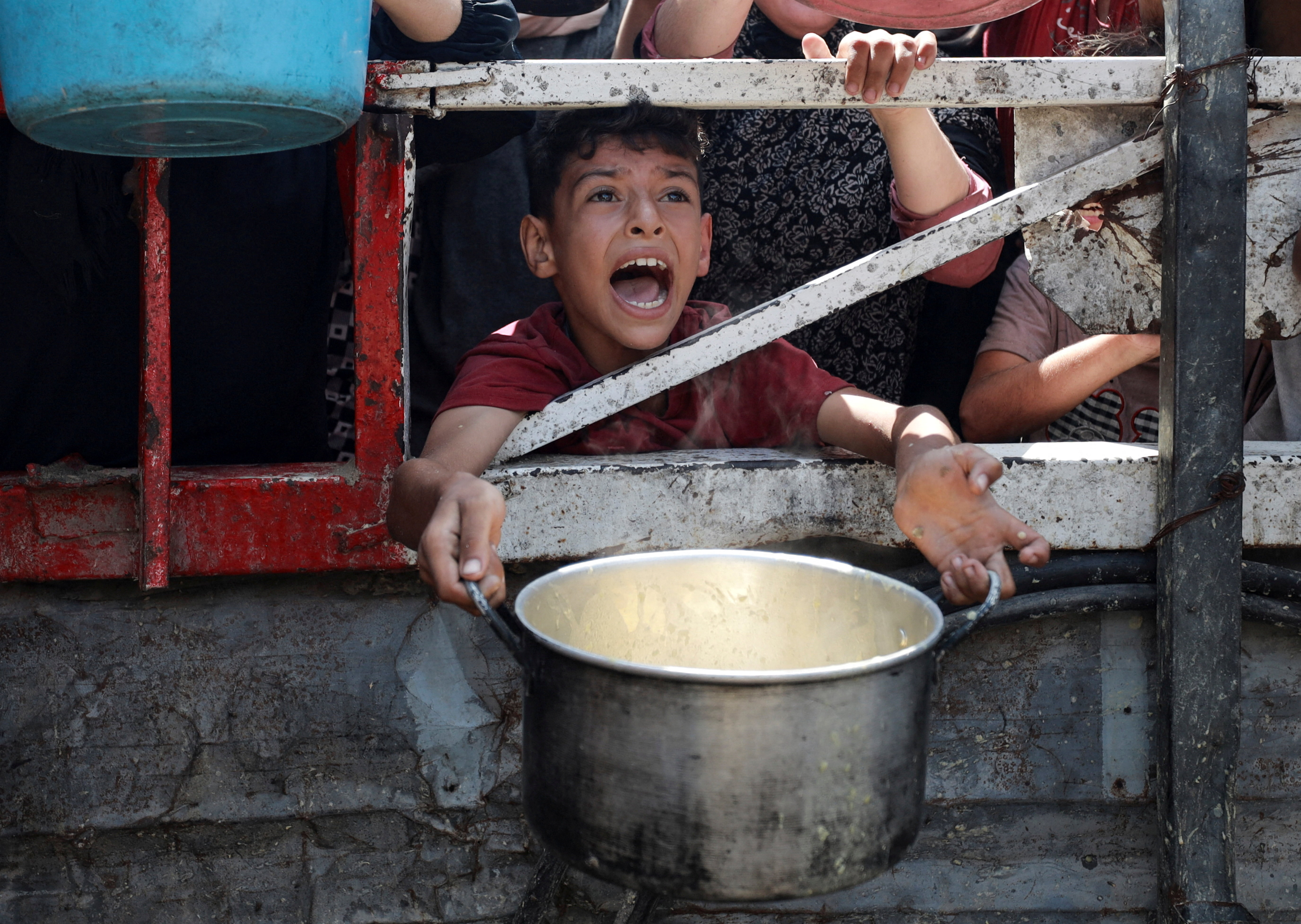Two Israeli human rights organisations said Israel was committing genocide against Palestinians in Gaza, the first major voices in Israeli society to level the strongest possible accusation against the state, which vehemently denies it.
Rights group B’Tselem and Physicians for Human Rights Israel released their reports at a press conference in Jerusalem, saying Israel was carrying out “coordinated, deliberate action to destroy Palestinian society in the Gaza strip”.
“The report we are publishing today is one we never imagined we would have to write,” said Yuli Novak, B’Tselem’s executive director. “The people of Gaza have been displaced, bombed and starved, left completely stripped of their humanity and rights.”
Physicians for Human Rights Israel focused on damage to Gaza’s healthcare system, saying: “Israel’s actions have destroyed Gaza’s healthcare infrastructure in a manner that is both calculated and systematic”.
Israel has fended off accusations of genocide since the early days of the Gaza war, including a case brought by South Africa at the International Court of Justice in the Hague that Prime Minister Benjamin Netanyahu condemned as “outrageous”.

Israel has consistently said its actions are justified as self-defence, and Hamas is to blame for harm to civilians, for refusing to release hostages and surrender, and for operating in civilian areas, which the militant group denies.
A spokesperson for the Israeli government called the allegation made by the rights groups on Monday “baseless”.
“There is no intent, (which is) key for the charge of genocide … it simply doesn’t make sense for a country to send in 1.9 million tons of aid, most of that being food, if there is an intent of genocide,” said spokesperson David Mencer.
Israel’s military also rejected the reports’ findings as “baseless”. It said it abides by international law and takes unprecedented measures to prevent harm to civilians while Hamas uses them as “human shields”.
Israel launched its war in Gaza after Hamas-led fighters attacked Israeli communities across the border on October 7, 2023, killing 1,200 people, mostly civilians, and taking 251 hostages back to Gaza. Israel has often described that attack, the deadliest day for Jews since the Holocaust, as genocidal.
Since then, Israel’s offensive has killed nearly 60,000 people in Gaza, mostly civilians, according to Gaza health officials, reduced much of the enclave to ruins, and displaced nearly the entire population of more than two million.
Accusations of genocide have particular gravity in Israel because of the origins of the concept in the work of Jewish legal scholars in the wake of the Nazi Holocaust. Israeli officials have in the past said using the word against Israel was libellous and antisemitic.
When Amnesty International said in December that Israel had committed genocidal acts, Israel’s foreign ministry called the global rights group a “deplorable and fanatical organisation”.
The 1948 Genocide Convention, adopted globally after the mass murder of Jews by the Nazis, defines genocide as “acts committed with intent to destroy, in whole or in part, a national, ethnic, racial or religious group”.
PALESTINIAN PLIGHT GAINING ATTENTION
At a Jerusalem cafe, Carmella, a 48-year-old teacher whose grandparents survived the Holocaust, said she was distressed over the suffering an hour’s drive away, inside Gaza.
“It feels difficult to me as an Israeli, as a Jew, to watch those images and feel anything but tremendous compassion and horror, to be honest. I feel horror.”
International attention to the plight of the Palestinians in Gaza has intensified in recent weeks, with U.N. agencies saying the territory is running out of food.
Israel, which controls all supplies in to Gaza, says it has let enough food in, and blames the U.N. for failing to distribute it.
Israel shut off all supplies in March for nearly three months, reopening the territory in May but with restrictions it says are needed to prevent aid from ending up in the hands of fighters. Since then, its forces have shot dead hundreds of Gazans trying to reach food distribution sites, according to the United Nations.
Israel has announced measures in recent days to increase aid supplies, including pausing fighting in some locations, allowing airlifts of food and safer corridors for aid.
Throughout the conflict, Israeli media have tended to focus mainly on the plight of Israeli hostages in Gaza. Footage widely broadcast in other countries of destruction and casualties in Gaza is rarely shown on Israeli TV.
That has been changing, with recent images of starving children having a little more impact, said Oren Persico from The Seventh Eye, a group that tracks trends in Israeli media.
“It’s very slowly evolving,” he said. “You see cracks.”
But he did not expect the genocide allegation would spark a major shift in attitudes: “The Israeli perception is: ‘what do you want from us? It’s Hamas’ fault, if it would only put down its weapons and (release) the hostages this could all be over’.”
In an editorial in the Jerusalem Post on Sunday, Dani Dayan, the chairman of Israel’s Yad Vashem Holocaust memorial, said it was not accurate to accuse Israel of committing genocide.
“But that does not mean we should not acknowledge the suffering of civilians in Gaza. There are many men, women, and children with no connection to terrorism who are experiencing devastation, displacement, and loss,” he wrote. “Their anguish is real, and our moral tradition obligates us not to turn away from it.”






Click here to change your cookie preferences